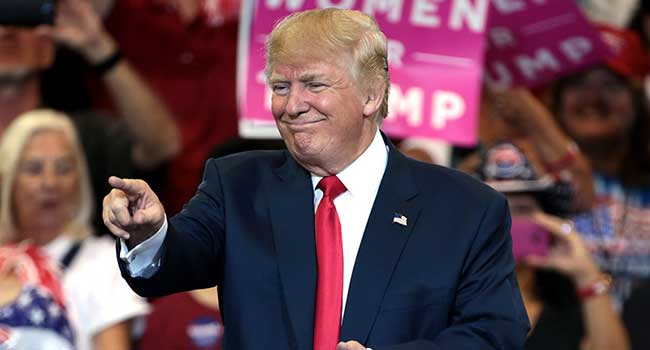Of the 20 states with two Republican senators, only one state had both of those senators publicly declare they would not vote for their party’s presidential nominee this year – Arizona.
But political experts said the state should not worry about retribution from President-elect Donald Trump for the well-publicized squabbling between him and Arizona Sens. Jeff Flake and John McCain. They need each other if they hope to get anything done, even in a GOP-dominated Washington.
“After an election, a politician will need to moderate their message because they do need to be able to govern, and governing is different than campaigning,” said Lori Poloni-Staudinger, chair of Northern Arizona University’s School of Politics and International Affairs.
“He is going to need them, and he is going to need their support,” Poloni-Staudinger said of Trump’s future relations with Congress.

That was echoed by Richard Herrera, associate professor at Arizona State University’s School of Politics and Global Studies, who said the president-elect will mostly likely work with Congress. Americans have seen his “willingness to say something harsh, but also willingness to back off,” Herrera said.
That willingness to mend fences has already been seen in Trump’s meetings during the transition process with a parade of former adversaries.
Texas Sen. Ted Cruz, Wisconsin Gov. Scott Walker, former Texas Gov. Rick Perry, surgeon Ben Carson, former Arkansas Gov. Mike Huckabee, New Jersey Gov. Chris Christie have all made the trek to Trump Tower or Trump’s New Jersey golf resort. All were challengers in the crowded presidential primary field at one point, and not all immediately rallied to Trump’s side during the campaign.
Few were more vocal in their opposition to Trump than Flake, who said during the campaign that, given “the positions he (Trump) has taken and the one and tenor of his campaign,” he could not vote for the GOP nominee, according to published reports. After the October release of a 2005 recording in which Trump is heard making offensive and lewd comments about women surfaced, Flake tweeted that “America deserves far better” than Trump and called on Trump to withdraw from the race.
In a closed-door meeting with Republican lawmakers over the summer, Trump said he was well aware of Flake’s criticisms and that he could ratchet up pressure against the senator who had “been very critical of me,” according to published reports.

McCain gave tepid support throughout the campaign to Trump – who made headlines last summer by belittling McCain’s war record. When pressed, McCain said repeatedly that he would support the party’s nominee, without naming Trump.
That changed with the release of the October tape, which drove McCain to say he could not vote for Trump that and his wife would instead “write in the name of some good conservative Republican who is qualified to be president.”
Both McCain and Flake congratulated Trump on his victory, although Flake noted that he was eating crow as he offered his congratulations. Both have had praise for some Trump Cabinet choices, with McCain praising the selection of retired Marine Corps Gen. James Mattis for Defense secretary and Flake saying he looks forward to supporting Alabama Sen. Jeff Sessions’ nomination to be attorney general.
But neither has cozied up to Trump, and McCain has spoken out against several of his policies already, warning against warmer relations with Russian President Vladimir Putin, criticizing a proposal to remove National Security Agency Director Mike Rogers and vowing there would be legal action if the new administration tried to reinstate the practice of “water-boarding” prisoners.
Trump has been conciliatory in the wake of the election, with kind words for Democratic nominee Hillary Clinton and for President Barack Obama. But he also has a reputation as someone who settles scores, and the day after the election a campaign aide referenced an “enemies list” of those who did not support Trump in the general election.
That comment came from Trump’s director of African American outreach, Omarosa Manigault, a former contestant on his reality television show “The Apprentice.”
Herrera said it’s “hard to know how much influence she (Manigault) has on the decision-making by the president,” but that an enemies list would “normal in one sense” for politicians to keep tabs on the political world.
Multiple requests for comment from McCain and Flake were not returned.
But Poloni-Staudinger said it all comes back to the fact that they will have to work together.
“They might be put on this enemies list, but the president does need to work with Congress,” she said.
By Allie Bice, Cronkite News




